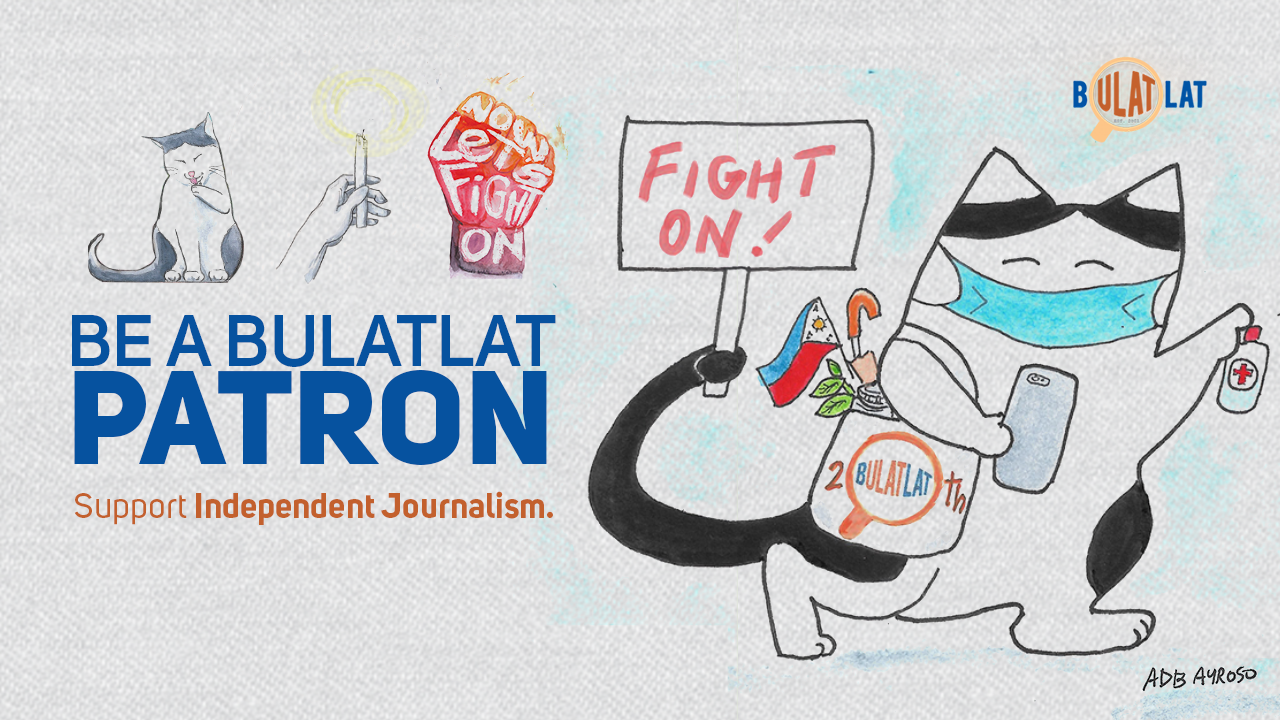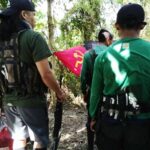
By JONEL B. DALIMAG, CICM (Baguio City)
First Reading: Deut. 8: 2-3, 14B-16A
Res. Psalm: Psalm 147:12-13, 14-15, 19-20.
Second Reading: 1 Cor. 10: 16-17
Gospel Reading: JOHN 6: 51-58
‘Do this in Remembrance of Me‘
We are just pilgrims here on earth. We are all travelers. We are just passing through this world. Our worldly existence is very much finite. Our worldly existence could not overpower time. We will all bow to the power of time. However, we have a consolation that could somehow tame the grip of time -MEMORY. It is always our goal to make our journey in life memorable, not only for us but for those who know and love us. Almost every day in our life, we try to create memories that would become part of our project called existence. Even Jesus Christ advised his disciples to eat and drink together “in memory or in remembrance” of Him. At the Last Supper, He said to His disciples: “Do this in memory of me.” And since then, His memory lives on in millions, if not billions of people. It may sound anachronistic, but I believe it is along this line that Moses, in the 1st reading, asked his people to remember the experiences of their ancestors: “Remember how for forty years now the LORD, your God, has directed all your journeying in the desert… He, therefore, let you be afflicted with hunger, and then fed you with manna, a food unknown to you and your fathers, in order to show you that not by bread alone does one live, but by every word that comes forth from the mouth of the LORD” (Deut. 8:2-3). Indeed, it was not by bread/manna alone that the Jews survived the desert for 40 years, but by their faith with the reinforcement of the memory of their ancestors who worshipped God as pilgrim people. It was not by bread alone, but by the relationships, they built together in their journey. It was not by bread alone, but by the stories they shared as they journeyed toward the promised land.
Memory Lane
Memory is a great tool of faith for us Church workers and social advocates, and Moses is reminding us again today. Memory gives sense and meaning to our faith experiences, just as it provided the context of the struggles of the Jews in the desert. “In every culture, memory (the capacity or remembering) is a faculty without which every experience can result to non-sense. Memory is necessary in order to remember what one has seen, learn, and acquired in time” (Martin Nkafu Nkemnkia, Interculturality, and Multiculturalism: Social and Anthropological Perspective, in Sedos Bulletin 2016, Vol. 48, No. 5/6 -May-June).
Memory connects us to the roots of our very own identity. To completely disregard the memory of our faith ancestors who have gone ahead of us means cutting the root of our very being, of who we are. Lolo Kiko warned us that “The lack of historical memory is a serious shortcoming in our society. A mentality that says, “Then was then, now is now”, is ultimately immature…Memory is necessary for growth.” (AL, 193) Memory is an engine that keeps our family, our community, our values, and our principles up and running. We could almost hear our loved ones who have gone ahead of us into the next life say: ‘Do that in memory of us.’ And indeed, every time we celebrate important family and community events, we do it in remembrance of our loved ones. This memory lane assures us that our community has a well-grounded and solidly-rooted future. It assures us that we all have a place in the memory lane and history of our family/community, just like our loved ones who have walked this memory lane once. Memory is not just a mental activity. It is an energy that enlivens our new ways of caring and relating with our loved ones. As a form of energy, it regenerates dynamism in our relationships.
The ‘Bread of Life’: Taken, Broken, and Shared
The Solemnity of Corpus Cristi brings to the fore two opposite realities of life: food and hunger. While we Blessed Sacrament as the Bread of life: “I am the living bread that came down from heaven; whoever eats this bread will live forever; and the bread that I will give is my flesh for the life of the world”; let us not forget that in our midst, there are thousands, if not millions, of people who are experiencing hunger every day. The ‘Body’ of Christ that we celebrate today, is the same body that came into our world as a human body that took the form of a slave and was born in, perhaps, the most inhuman condition, being surrounded by darkness, cold, and by animals. The ‘Body of Christ’ that we celebrate today came bruised, rejected, and vulnerable. He came to us as a refugee. He also took up our stories, struggles, aspirations, and hopes by coming to us in a human body. It was his personal stories, his parables, and his acts that the His followers missed so much when He was killed. The first Christian community was formed because they gathered together to share and reminisce about the stories of Jesus, their joys, and hopes when Jesus was with them. It is these human stories, our stories, and the stories of our brothers and sisters, especially the poor, marginalized, and abandoned, that make up the ‘Body of Christ’. This is perhaps the reason why Pope Francis prefers a “Church which is bruised, hurting and dirty because it has been out on the streets, rather than a Church which is unhealthy from being confined and from clinging to its own security. I do not want a Church concerned with being at the center and then ends by being caught up in a web of obsessions and procedures. If something should really disturb us and trouble our consciences, it is the fact that so many of our brothers and sisters are living without the strength, light, and consolation born of friendship with Jesus Christ, without a community of faith to support them, without meaning and a goal in life. More than by fear of going astray, my hope is that we will be moved by the fear of remaining shut up within structures that give us a false sense of security, within rules which make us harsh judges, within habits which make us feel safe, while at our door people are starving and Jesus does not tire of saying to us: “Give them something to eat (Mk 6:37)” [Evangelii Gaudium No. 49].
May this Solemnity of Corpus Christi open our eyes to the stories of our brothers and sisters who are suffering, whose bodies are bruised, broken, and hurting. After all, the Blessed Sacrament that we celebrate and share every Eucharist is taken, broken, blessed, and shared. There is a human and divine story in this sacrament. “When Jesus hands over his body to the disciples he is vulnerable. He is in their hands for them to do as they wish. One has already sold him, another will deny him, and most of the rest will run away… The Last Supper shows us with extreme realism the perils of giving ourselves to anyone… The Last Super is the story of the risk of giving yourself to others” (Timothy Radcliffe, OP, What is the Point of Being A Christian, 2005). Indeed, Jesus has handed His Body to us. It is up to us if we take His challenge of handing or rendering our efforts, energies, resources to the needy, the marginalized, the abandoned, and the displaced. If we truly believe and love Jesus, let us follow his example of taking the risk. In the Last Supper, Jesus exposed his body to so many dangers. Jesus took the risk because he loved. “Love is the only impetus that is sufficiently overwhelming to force us to leave the comfortable shelter of our well-armed individuality, shed the impregnable shell of self-sufficiency, and crawl out nakedly into the danger zone beyond, the melting pot where individuality is purified into personhood” (Mak Patrick, OSB, 2000).
Our Lord Jesus embraced all the risk when he instituted the Eucharist in the Last Supper. “The Last Supper was a moment of crisis in Jesus’s relationship with his disciples. The community collapsed, the bonds of fellowship were denied and subverted. Jesus embraced that crisis and made it fertile. Perhaps almost every intimate relationship will know its moment of crisis. When we give ourselves most deeply to other people, then, almost inevitably, there will be a moment of potential disaster. The Last Supper invites us not to run away from a crisis, but to embrace it, confident that it can bear fruit” (Timothy Radcliffe, OP, 2005). ![]()
Balik-Tanaw is a group blog of Promotion of Church People’s Response. The Lectionary Gospel reflection is an invitation for meditation, contemplation, and action. As we nurture our faith by committing ourselves to journey with the people, we also wish to nourish the perspective coming from the point of view of hope and struggle of the people. It is our constant longing that even as crisis intensifies, the faithful will continue to strengthen their commitment to love God and our neighbor by being one with the people in their dreams and aspirations. The Title of the Lectionary Reflection would be Balik –Tanaw , isang PAGNINILAY . It is about looking back (balik) or revisiting the narratives and stories from the Biblical text and seeing, reading, and reflecting on these with the current context (tanaw).




